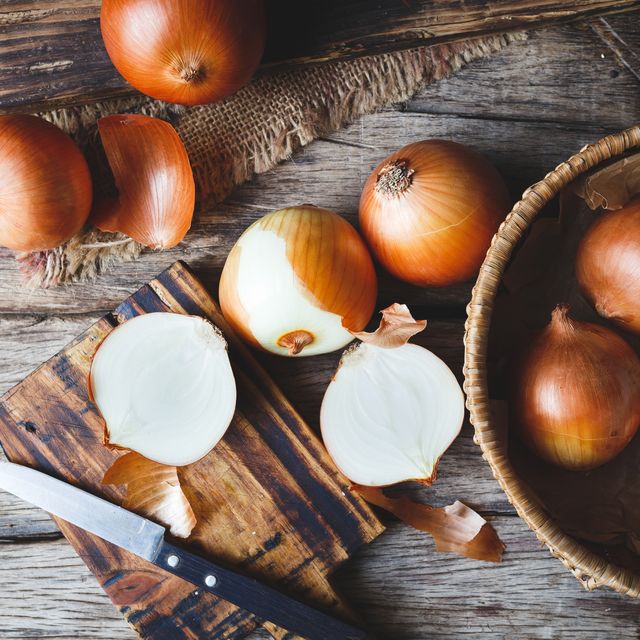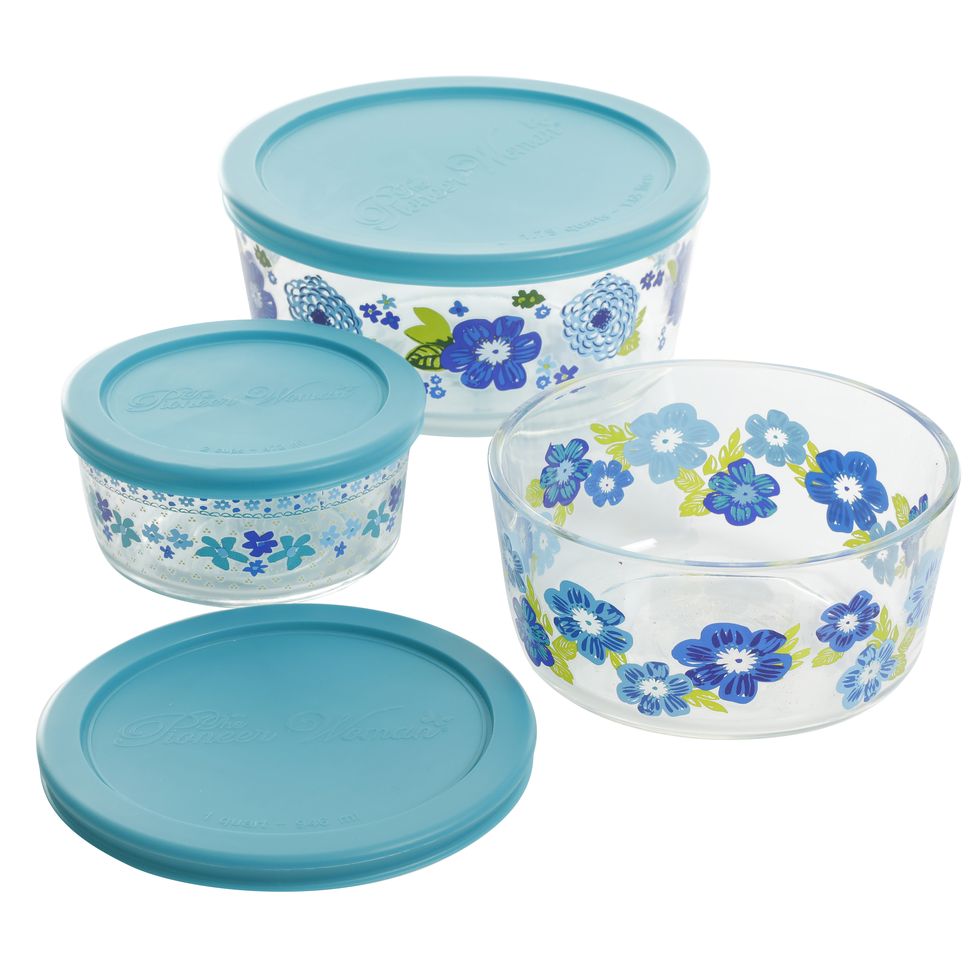The onion is a staple in nearly every kitchen pantry—and for good reason! It can take a dish from plain to special: Look no further than Ree Drummond’s penne with cauliflower and caramelized onion for proof! Onions can last much longer than most produce, but many people aren't quite sure how to store onions the right way. Fridge? Counter? Whole? Cut? Read on to get the scoop.
Whether you like chopped raw onion on your tacos, braised onions with meat, or crispy fried onion strings, there are plenty of reasons to stock up on onions. (Especially if you're planning for holiday cooking—so many favorite dishes, like stuffing and green bean casserole call for onions!) So go ahead: Buy that 5-pound bag of onions at the grocery store. If you store them the right way, they'll be good for at least a month.
Can onions be stored on the counter?
Most bagged onions and the ones you get from the bins at the grocery store will be happiest stored in a cool, dry place, preferably away from light (these are "storage" onions—your average red, white and yellow ones). If this environment sounds like your countertop, you're in luck! Potatoes like similar conditions, but don't store the two together. Onions emit ethylene gas that will age and rot potatoes, which is problematic in and of itself, but the rotting potato will then impact the onions, causing them to ripen and rot as well. Store your onions separately—and keep them whole and unpeeled.
Can onions be stored in the refrigerator?
Technically they can, but two not-great things happen when you refrigerate most onions: First, the cold environment of a refrigerator converts the starch in an onion into sugar, which results in soft or soggy onions. Second, the onion absorbs the moisture from its humid surroundings, which also results in an unpleasant softening in texture.
However, once an onion has been cut, store it in the refrigerator in an airtight container—preferably a glass one, as plastic absorbs odors. You want to minimize moisture and oxidation, both of which will affect the flavor and texture of the cut onion. So if you're prepping for a big feast, pre-chop your onions and store them in the fridge in an airtight container.
Now when it comes to fresh onions, like spring onions with their green tops attached, or sweet onions, like Vidalias and Walla Wallas, refrigeration is your best bet for long-term storage. These varieties contain more moisture than standard storage onions (red, yellow or white onions) and will benefit from refrigeration. All onions can withstand a few days at room temperature, but the added moisture of young or sweet onions means they’re more likely to rot or break down after a few days.
How do you keep onions from rotting?
It's all about proper storage: Keep the onions away from sunlight, in a cool, dry, well-ventilated spot. Any environment that fosters moisture will result in onion spoilage.
Also keep in mind that onions have likely sat in transit for some time before they make it to a produce aisle. If you’ve ever sliced into an onion and found that it's rotten, even after storing your onion haul properly, it’s likely rot that developed from previous improper storage conditions or may have even formed in the ground.
How do you store onions for a month?
With proper storage conditions—repeat “cool, dry and dark” five times!—most onions should last at least a month. For more perishable onions, like spring or sweet onions, to prolong their shelf-life in the refrigerator, consider wrapping each bulb individually in paper towels to absorb any excess moisture, which can affect flavor and texture and also expedite spoilage.















